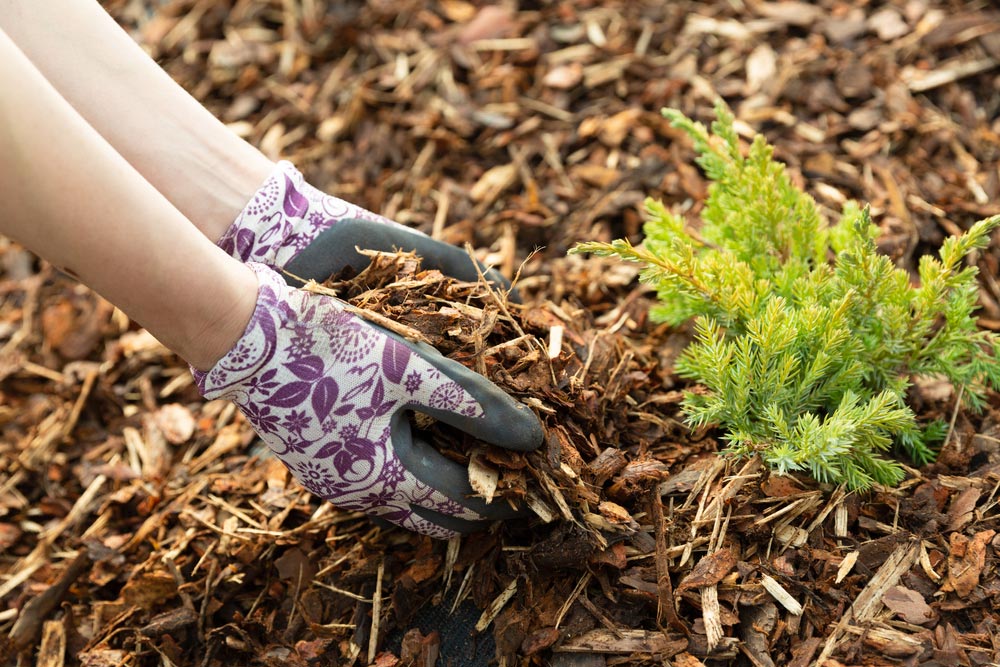Mulch is a layer of organic material that can be applied to the top of your flowerbed. It is made of wood from trunks that have been ground by a piece of powerful machinery, into a classic flake or chip appearance you see from most stockists. It can be made from seaweed, garden compost, conifer bark, leaf mould and waste wood, or from a non-biodegradable alternative.
Anyone who requests that a tree stump is removed from their yard will have the stump destroyed by a process called stump grinding. This is where the wood is shredded into mulch by a tool, which can then be used as mulch on your garden or sold to an independent trader who specialises in horticultural supplies. Trees that are cut down can also be made into mulch, though this is not the only option.

One of mulch’s main purposes is to block sunlight from all plants that are growing under its surface. This prevents weeds from germinating, so your flowerbed will stay tidy and uncluttered with unsightly new additions like thistles and dandelions.
The substance not only makes your garden look neater by covering up the areas of dirt, but it can help with many important housekeeping duties. Mulch decreases the breeding activity of pests, such as mosquitoes, and protects your plants from insects who will take a liking to their leaves. It also helps to retain moisture in dryer conditions, so if your area experiences little rainfall over spring and summer, laying down some mulch would be ideal. You will find yourself needing to water the bed less often, and your greenery will stay hydrated for longer.
Mulch also adds the benefit of fertilisation. As the substance ages, it will start to decompose, eventually turning into an earthy sludge that binds with the soil and gives your plants extra strength in their growth.
Spring is the optimum time to plant flowers in your garden, so as soon as you have placed your new plants in the flowerbed, getting a bag of mulch is a fantastic next step in the process. This will ensure that weeds, which will also be peaking in their germination period, are stopped in their growth before it is too late. The last service you will want to invest in is weed removal, as it can pose a risk to your plants when the flowerbed has become cluttered. Mulch is better for the environment and can provide more long-lasting positives for your plants in the following months.
Similarly, the addition of mulch’s natural decomposition means that your plants will reap the benefits of added fertilisation, which will help them to grow healthy and strong. By summer, you will see the effects of this, with hardy, large flowers which are rich in nutrients for any pollenating insects – like bees.
Plus, your plants will never be affected by hot, dry weather when the mulch retains moisture content. Summer in particular can be an extremely difficult time for plants, so getting your garden mulched in spring can help to prepare for water shortages.
If you want to prepare your soil for planting in beforehand, you can designate the spring months to laying down mulch. After it has decomposed, you can then plant your new additions into the bed’s soil, which will be of great quality.
Here at All Tree Solutions, we can provide you with the best mulch for your garden in New South Wales, delivered to you in time for spring. Contact us today!